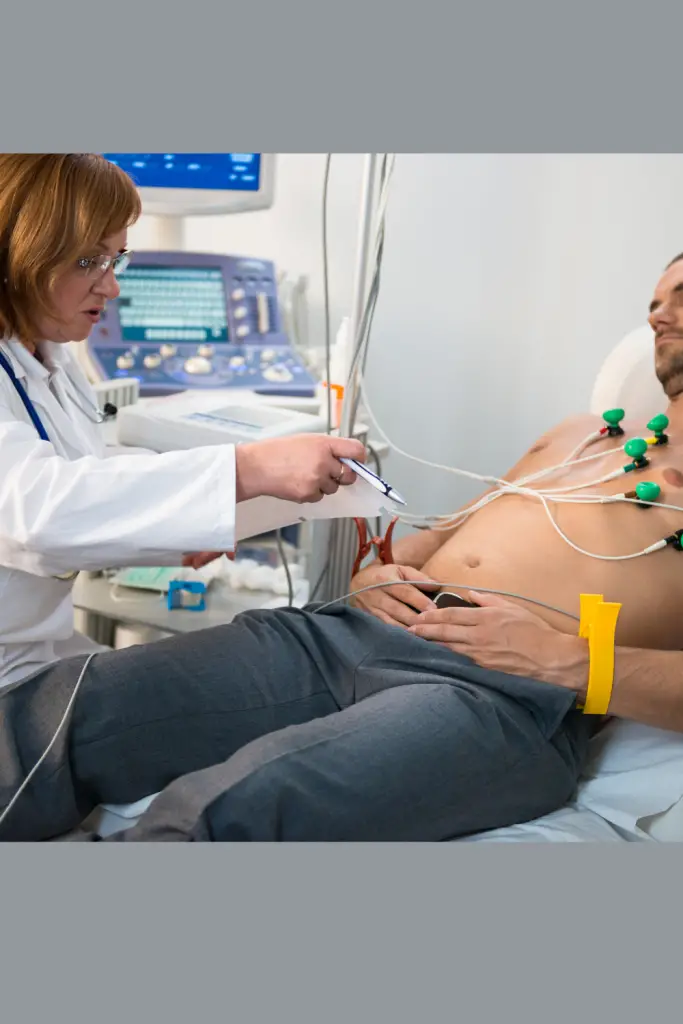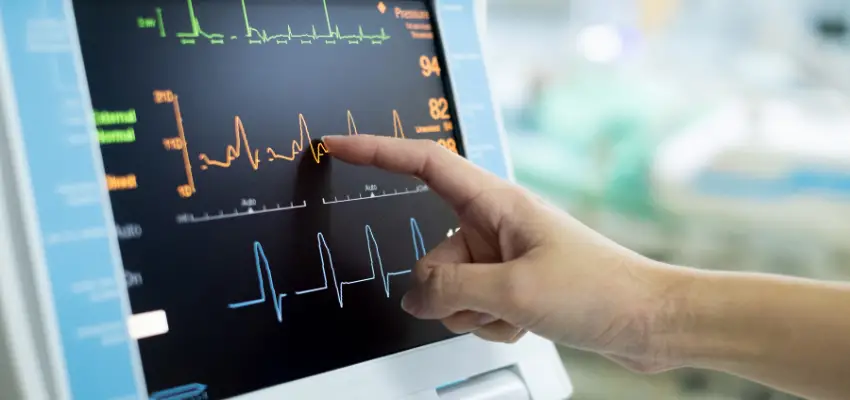Introduction:
When it comes to our heart’s health, understanding the tools and tests used for diagnosis is crucial.
One such tool is the electrocardiogram, commonly known as an EKG.
But can EKGs detect heart blockages? In this article, we’ll discuss EKGs, exploring what they can and can’t do in the realm of identifying heart blockages.

What Are EKGs?
Electrocardiograms, or EKGs, are fundamental tests that measure the electrical activity of the heart. They involve placing electrodes on the skin to record the heart’s electrical impulses.
The Ischemia Connection
Ischemia occurs when a part of the heart muscle doesn’t receive enough blood due to a blockage. EKGs can sometimes indicate the presence of ischemia through specific changes in the recorded electrical signals.
Can EKGs Detect Blockages?
While EKGs can hint at ischemia, they can’t definitively identify blockages or determine their severity. They offer valuable clues, but aren’t the primary tool for this purpose.
Locating Blockages
In some cases, EKGs may suggest where a blockage could be located within the heart, helping guide further diagnostic tests.
The Primary Purpose of EKGs
It’s essential to remember that EKGs are primarily designed to assess the heart’s electrical activity and diagnose arrhythmias or electrical irregularities.
Conclusion
In conclusion, EKGs are indispensable tools for evaluating the heart’s electrical function.
While they can provide indications of ischemia and offer clues about potential blockages, they fall short of providing a complete picture.
To pinpoint blockages accurately, your healthcare provider will likely recommend additional tests, such as angiograms.
EKGs are an essential step in understanding your heart’s health, but they are just one piece of the diagnostic puzzle.
By simplifying the role of EKGs in detecting heart blockages, we hope to empower you with knowledge about this vital aspect of heart health.
Remember that if you suspect heart issues, it’s crucial to consult with a healthcare professional for a comprehensive evaluation and diagnosis. Your heart’s well-being is worth it.
Sources
https://pubmed.ncbi.nlm.nih.gov/31747210/
Related Articles
Will a heart attack show up on an EKG?
What is a widowmaker heart attack?
My name is Phyllis Robinson MSN, RN. I have been a Registered Nurse for 27 years in the Cardiac Intensive Care Unit. I am passionate about cardiac care and heart disease. I also want this blog to be an educational tool that people can refer to for traditional and alternative treatment. I will blog on heart disorders such as high blood pressure, congestive heart failure, cardiomyopathy, and high cholesterol.
I received my Nursing degree from Baltimore Community College.
I went on to receive my Masters in Nursing from Walden University
I have worked for almost 30 years in Critical Care with a focus on heart health. I am an advocate of preventive healthcare.

